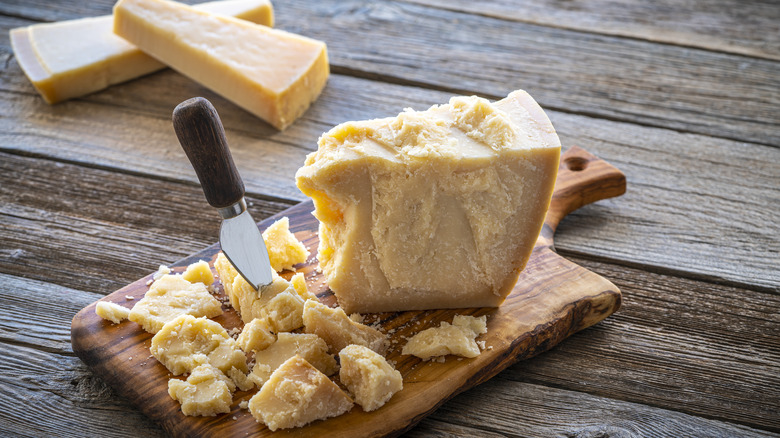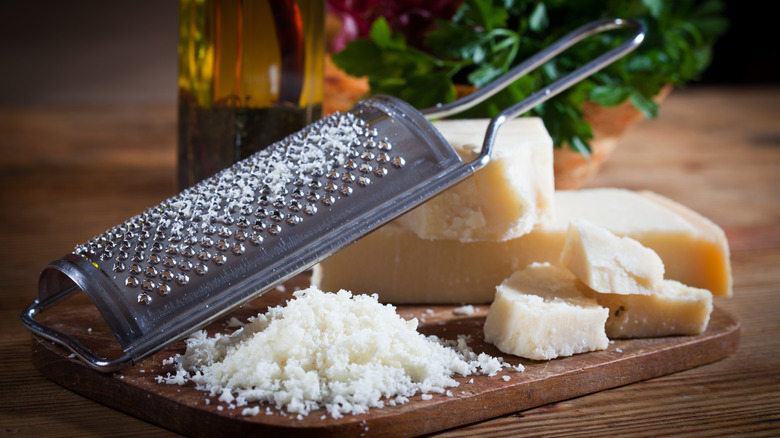Why Parmesan Cheese Has Such A Long Shelf Life
Parmesan cheese, one of the most popular Italian cheeses found in most fridges, possesses a remarkable trait that sets it apart from many others — the ability to withstand the test of time. If you've ever wondered why your parmesan block seems to last forever, it's all due to its unique characteristics and craftsmanship.
Parmesan cheese is a hard, aged cheese that is crafted through a meticulous process, typically aged for 12 months or more, and sometimes even up to 36 months. This aging process results in a cheese with very low moisture content, which is a crucial factor in its impressive shelf life. With less moisture available for bacteria and mold to thrive on, parmesan cheese remains resistant to spoilage for longer than other, softer cheeses. The salt content in parmesan cheese also plays a significant role in extending its shelf life. The salt acts as a preservative by inhibiting the growth of spoilage-causing microorganisms. The combination of low moisture and high salt content makes parmesan cheese a formidable contender against rot, allowing it to stay fresh and flavorful for an extended period.
An unopened block of parmesan cheese can remain good for up to six to eight months or even longer when stored in optimal conditions, such as a cool, dry place, or the refrigerator. Once opened, a block of parmesan cheese can last anywhere from two to four months or more, provided it's properly stored. Wrapping it tightly in plastic wrap or aluminum foil and storing it in an airtight container will help maintain its quality.
Look for these signs of spoilage
Grated parmesan cheese, whether store-bought or grated at home, has a slightly shorter shelf life due to increased surface area exposure. An unopened container can last for about two to four months, while an opened one may last for several weeks if well-sealed and refrigerated.
While parmesan cheese has some serious lasting power, it's essential to be vigilant for signs of spoilage. If your parm exhibits any of these warning signs, it may be time to bid it farewell. One thing to look for is visible mold growth that extends beyond surface cleaning. Off-putting odors, such as a sour or rancid smell, can also indicate spoiled parmesan. Changes in texture, such as excessive dryness or the development of an oily film, are another signal that your cheese has gone bad.
So, whether it's in block or grated form, parmesan cheese can grace your dishes with its rich, nutty flavor for months on end, making it a pantry staple that's both versatile and dependable. Just remember to store it properly and keep an eye out for any signs of decomposition to enjoy its culinary magic to the fullest.

